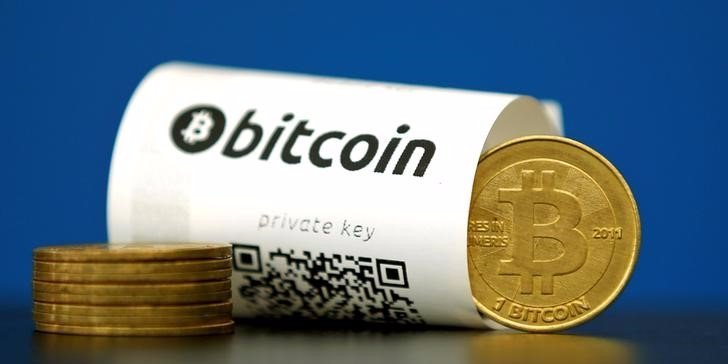Gold Silver Reports (GSR) – However, ICOs contain an implied promise by the issuer that it will work to increase the value of the security—through proprietary technological breakthroughs or other methods. This implied promise makes them securities and the SEC reserves the right to police them.
I wrote recently in this column that the Securities and Exchange Commission (SEC) of the US has stated publicly that bitcoin and ether—the two mediums that have the most highly valued presence in the cryptocurrency market—are not securities, while initial coin offerings (ICOs) are.
A cryptocurrency is simply a token on a blockchain network, and an ICO represents a sale of such tokens in a start-up. These tokens can be bought and sold later on a cryptocurrency platform.
A person who buys traditional stock in a company owns a percentage of that company, just as a person buying tokens in an ICO ostensibly owns a percentage of the start-up.
However, unlike cryptocurrency tokens, traditional securities are not traded 24 hours online. They are bought and sold via stock exchanges, which are open during fixed hours.
Investors cannot trade stocks without a broker or other intermediary.
Government agencies such as SEC and Securities and Exchange Board of India regulate securities and stock exchanges and will now regulate ICOs. This regulation protects investors and ensures that companies aren’t fleecing them.
But with bitcoin and ether, SEC maintains that no one seller is making an implied promise to increase the value of the asset. People use them to buy things and their trading platforms have been highly decentralized more or less since their inception.
The idea of allowing parallel currencies to coexist is not new, though governments have been alternately lax and draconian while regulating them.
R.P. Kangle’s translation of Kautilya’s Arthashastra refers to two kinds of currencies—one for use in trade and the other for receipt in the treasury. In Kautilya’s time, merchant guilds could get their own coins stamped elsewhere than at the royal mint. There was a fine for doing so, but in practice this seems to have worked merely as a licence fee to mint coins elsewhere.
The criticism of cryptocurrency companies is that they are pyramid scams, which don’t deliver anything of value. Critics say they are intentionally designed to make money for those on top by taking advantage of those at the bottom—usually the “miners” or clerks, who go to great lengths of effort and expense to verify transactions made with cryptocurrency tokens as being genuine.
At its heart, all that a blockchain does is to make sure the “block” isn’t tampered with as it passes hands in the “chain” by using technology that ensures multiple databases or ledgers all record the block as being of a fixed value. A blockchain can be used for anything—and, as I have noted here before, has even been used to ensure free and fair elections. Earlier this week, there was news of the Telecom Regulatory Authority of India mandating its use by cellular companies to better track telemarketers.
TechCrunch now reports that the small country of Malta, part of the European Union, plans to create a stock exchange that is both regulated and decentralized. The island nation has earned the sobriquet “Blockchain Island” for its progressive attitudes with respect to cryptocurrencies as well as blockchain.
On 19 July, the Malta Stock Exchange announced that it would begin a pilot programme, along with Neufund, a blockchain-based equity trading platform, and Binance, a large cryptocurrency exchange, to create a new global securities market that will allow for decentralization and regulation to exist side by side.
The Maltese exchange will provide investors with “tokenized” securities, which is a combination of the old world of securities and the new world of blockchain and cryptocurrencies. This will allow investors to trade these tokenized securities 24 hours a day on an online platform, while still enjoying the benefits of the protective oversight ensured by governmental regulation of securities.
This is not possible anywhere else in the world today. By being first movers, the Maltese hope to find themselves at the centre of what could be a huge market in a few years.
My bet is that they will.
